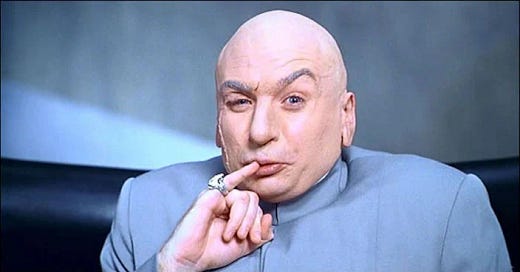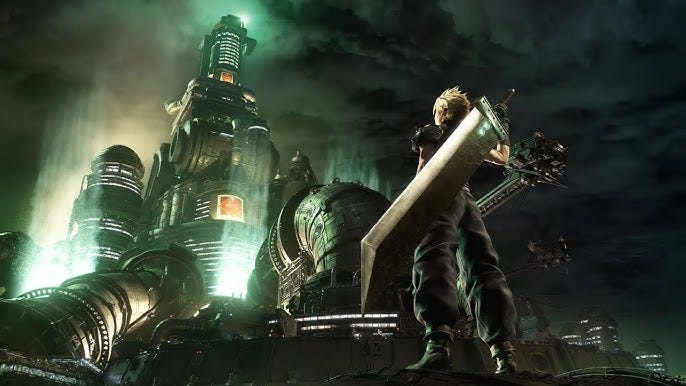There are a number of notable economic and technological changes that have occurred roughly over the last decade and half, with both the 2008 financial crisis and the global pandemic of some years ago also being pivotal points that effected things.
Automation started to be more frequently used by businesses to circumvent the need to rely on the labor market. This included the introduction of self-checkout kiosks, automated communications systems, and what really is “soft AI”. Generally, the way that automation has been used so far is strictly for the purposes of productive efficiency, and to a lesser degree, consumer convenience, but without regard for distributive or ecological concerns or any alternative for potential unemployed workers it could create. It has yet to actually threaten the labor market overall, but it has started to effect it in some areas.
A new form of hybrid remote work came into existence, in the form of rideshare work such as Uber and Doordash, which utilizes automation and AI as part of a digital platform in between the worker and the company, with the company not having the front-facing or management obligations of a normal business, not being subject to labor laws or minimum wages, and being able to pass off the remote employee as a non-worker who is self-employed, thus effectively passing off its tax obligations. It’s an unwaged form of work that relies on mileage + tips. This doesn’t create unemployment, but it does create a new special type of labor market that is quite conveniently “hands free” for the companies.
The internet went from more of a digital commons and a “wild west” space to a thoroughly corporate and commodified space, social media became the foreground of psychological warfare by political interests and was scandalously publicly revealed as a data mining and marketing operation with cynical purposes, while intellectual property was expanded in such a way that destroyed “fair use” and "public domain”. Along with this came the data mining and/or information-selling industry. “Meta”-industries that are parasitical on another one started increasing more generally, including with debt. Crypto and digital currency also went from a fetish just for libertarians to a more mainstream thing, while video games increasingly came to push continual pay-to-play models and the purchasing of cosmetic and non-functional digital items. What started at first as the move toward bottled water a few decades ago snowballed into business trying to commodify everything else that hadn’t yet been commodified.
Some things that people used to more commonly own became rents, while wages continued to not keep up with long-term inflation. The housing market in general became inaccessible to a significant number of people, especially people of millennial age and under. Eternally renting became the default, “situationships” became more common, and people became less likely to start families because they can’t afford it. During the pandemic, mini-packages of food items started to be sold for the same price as a normal version previously, while gas prices shot through the roof. Prices somewhat stabilized over time but never fully recovered. The job market also never was exactly the same after, some careers ended, and remote work became more of a thing. Hustle culture, being self-employed, having a multitude of “mini-jobs” or multi-apping rideshare platforms, or finding ways to make passive income somehow online, became more of the norm.
The fact that the business owning class is dependent on the state and engages in rent-seeking behaviors became acutely transparent, with the banks being bailed out, business in general being bailed out during the pandemic, and dependence on things like government contracts increased. A number of people who are the richest people on the planet also asserted themselves as power players in both the economy and politics, including Musk, Zuckerburg, and Bezos. They became easily caricaturable as Dr. Evil characters out of a dystopian novel, at the same time that the mentioned generational and economic issues occurred for the public. And more generally, they are part of the phenomenon of the tech industry emerging in a way that yields to concerns about technocratic authoritarianism.
Citizens United was established, which did the exact opposite of what campaign finance reform was supposed to be and blew open the election system to even more economic corruption than it already had before. This also roughly coincided with what now is the fact that neither of the two parties, the Democrats or Republicans, hold actual primaries anymore for presidential elections. Either party leadership chooses, such as the case of the Democrats, or someone pushes through and takes over the party, such as the case of Trump with the Republicans. More generally, the distinction between business leader and politician dissipated, with both Trump and now Elon Musk being the political authorities.
And here we are. The tech industry is making its big push into government and playing a game of shock therapy and opportunistically treating the public to some strange information espionage, with Elon Musk arguably steering the ship as much if not more than Trump. It’s not exactly anarcho-capitalism - there is still a federal government, which in the executive and police state domain has been strengthened to the maximum - but it also moves towards something a lot like where anarcho-capitalism would easily end up, it’s just that we’ve cut to the chase of “one big private government” and eliminated the poorly conceptualized or temporary period of “competing private governments”. We get an intensified move toward the merging of government and business / government run by business leaders directly as if it’s a business / unilateral privatized government. Which is not anarchism at all.
To be sure, the Trump administration has not actually achieved fully transferring the federal government into a unilateral private enterprise, but that seems to be evocative of something along the lines of what they want. Run government as if it’s a business and private property. It’s also notable that private military organizations is increasingly a thing and that while we might not have a full situation like Shinra Incorporated from Final Fantasy 7, something like that is possible. Elon Musk also has Silicon Valley technophilic delusions of grandeur about genetic and social engineering, robotics and AI, and space exploration, that fit in with what I’d consider dystopian desires, a hot mix of social darwinism and arrogant economic power elitism with technological utilitarianism. This makes him a particularly dangerous person in the position he currently is in, and it’s a somewhat open question as to what he’s ultimately really doing, but it doesn’t seem good at all, and his presence and actions vindicates people’s warnings about the rise of techno-oligarchy.
We simultaneously have a Democratic Party that is more limp and ineffectual than ever, which has either capitulated or thrown up its hands without a clue what to do. And lets not pretend that the general issues I refer to over the last decade or more is a partisan issue. The Biden Administration more or less simply “bought time” while the general economic trends continued on the same trajectory, and it didn’t actually use the full extent of its power to counteract the reactionary right’s moves, while in some cases actually normalizing them and capitulating on the issues. What’s more, the Democrats swept the economic problems under the rug with a message that America is Great and that it’s our duty to Make A Joyful Noise, completely tone-deaf to people’s disenfranchisement. The wonk pundits trotted out numbers about GDP growth and stock market health as if it reflects the average worker or consumer’s well-being, while gaslighting the public about its own misery during a painful downturn that coincided with mass isolation and new concerns about technocracy.
The general trends I describe are a matter of the machinations of economic power in a context in which high technology and automation is being more fully developed, and they are reflective of a longer-term trend of politics becoming hollowed out by economic interests and the state merging with business. Partisan politics or who happens to be in the presidency at a given moment thus is beside the point. But it would seem to be the case that Donald Trump is acutely a reflection of the American Id, the culmination of many years of degeneration in which the doors were cracked open for economic power to do whatever it wants and breed genuine sociopathic narcissists as power elites. The curve ball that people didn’t so much see coming around the corner is Elon Musk and Big Tech perhaps supplanting even him. But their combined efforts point in a direction that may irreversibly alter what our system is like. Their own incompetence may be their undoing, but the damage will be done.
It’s also worth considering that AI technology also isn’t actually “smart” *yet*. It’s just automated pattern recognition with an increased adaptability to inputs, but it has nothing like true consciousness or judgement and much of what it can currently do is trivial or useless. Robotics has more significantly started to develop, but its usage also remains niche, and the robots don’t have real consciousness. So, while there are legitimate concerns about the use of technology, we won’t be getting a Terminator 2 scenario anytime soon. But what is true is that we have opened the door for something like a digital panopticon and snowballed information warfare with existing technology, that the technophilic libertarian and reactionary types are happy to utilize even wonky AI in cynical ways and have more power than anticipated, and that there is a fork in the road here in which technology usage can go in the direction of an elite social engineering and social darwinism. You don’t want to give Dr. Evil the keys.
Some of the potential problems on the horizon posed by the tech industry are things that were anticipated by science fiction writers such as Isaac Asimov in his Robot and Foundation series. Those who are in the ideological bubble of Silicon Valley techno-optimism and transhumanism, which in many ways came out of a coalescence of New Atheism and market libertarianism, also often find science fiction inspirational in ways that others might see as the dystopian parts of science fiction. These are people who are obsessed with life extension and cryogenics because they want to live forever and entertain creating superhumans, and they tend to be non-humanists and misanthropes who are perfectly fine with the idea of replacing humans with robots or androids, don’t care about ecology and are hot to trot to colonize space while otherwise abandoning the masses to rot, and who may have an anarcho-capitalist-like vision of the future, amounting to some kind of overt private authoritarianism, that they think is actually a good idea. But the technological capability to get what they truly want is more limited than they tend to think, and much of the public can be prone to a healthy techno-pessimism about this stuff.
I can’t predict what will ultimately happen or not. But it does look like “a whole new world” is on the horizon that can potentially go quite bad. Buckle up.





